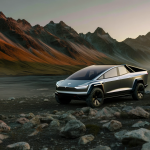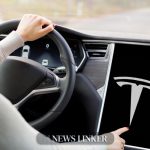In a striking display of market dominance, the Tesla Model Y emerged as Australia’s top-selling battery electric vehicle in March 2024, solidifying Tesla’s footprint in the country’s burgeoning EV landscape. Amid a strong sales performance that defied broader market challenges, Tesla’s compact electric SUV claimed the lead position, outperforming its competitors and even traditional automotive leaders in the overall vehicle rankings.
The electric vehicle industry has been expanding swiftly across the globe, with various regions exhibiting unique trends and consumer preferences. In Australia, the EV market has been growing particularly rapidly, with several new models being introduced. Historically, Australia’s adoption of electric vehicles lagged compared to other developed nations, due to factors such as lack of government incentives and infrastructure. However, recent years have seen a significant uptick in sales, led by global players such as Tesla, as well as emerging brands like BYD. This growth trajectory showcases the changing dynamics of the automotive industry as consumer preferences shift towards more sustainable transportation options.
Tesla’s Model Y Leads the Charge
In the latest figures released by the Federal Chamber of Automotive Industries, the Tesla Model Y not only topped electric vehicle sales but stood out as one of the most purchased vehicles in Australia overall. It surpassed other popular models, indicating a significant shift in consumer buying habits towards electric mobility. Tesla’s performance is a testament to the increasing appeal of electric vehicles and their competitiveness against traditional internal combustion engine vehicles.
Competitive Landscape
While Tesla’s Model Y and Model 3 took the first and second spots, respectively, in EV sales, other players like BYD also made their presence felt with the Atto 3 and BYD Seal. The sales numbers hint at a diverse competitive landscape where different brands vie for consumers’ attention. Even as some more affordable and established options did not generate as much interest, Tesla’s popularity underscores the importance of brand power and product quality in guiding consumer decisions.
A recent article from The Driven, titled “EV sales hit record high of 10,464 in March as Tesla crashes into Australia’s top 6 brands,” provides a broader context for Tesla’s success, painting a picture of an electric vehicle market on the rise. The Driven highlights the overall growth of EV sales in Australia, reflecting a nationwide shift towards electric mobility. In a separate piece, “Tesla Australia quits FCAI over misleading consumer claims,” Teslarati delves into Tesla’s decision to withdraw from the Federal Chamber of Automotive Industries, revealing potential friction points between EV manufacturers and traditional automotive industry bodies.
Industry Disputes and Future Trends
Tesla’s commitment to its mission and consumer transparency led to its exit from the FCAI, following Polestar’s earlier departure. The electric car giant has raised concerns over what it perceives as misleading consumer information and potential collusion within the industry, setting the stage for a shift in how electric vehicle data is reported and perceived in Australia.
Useful Information for the Reader
- Tesla Model Y becomes Australia’s favored EV in March 2024.
- Consumer trends lean towards sustainability and brand reputation.
- Industry disputes may influence future EV market reporting.
The surge in Tesla Model Y sales signifies more than just a monthly win; it represents a broader move towards electric vehicles gaining mainstream acceptance. Tesla’s vehicles, with a combination of high performance, cutting-edge technology, and environmental benefits, are attracting consumers and setting benchmarks for the industry. With Tesla’s decision to leave the FCAI, it’s clear that the company continues to prioritize its vision for a sustainable future over traditional industry alliances. This stance may encourage further transparency and consumer education in the EV sector, ultimately benefiting the market and the environment.










